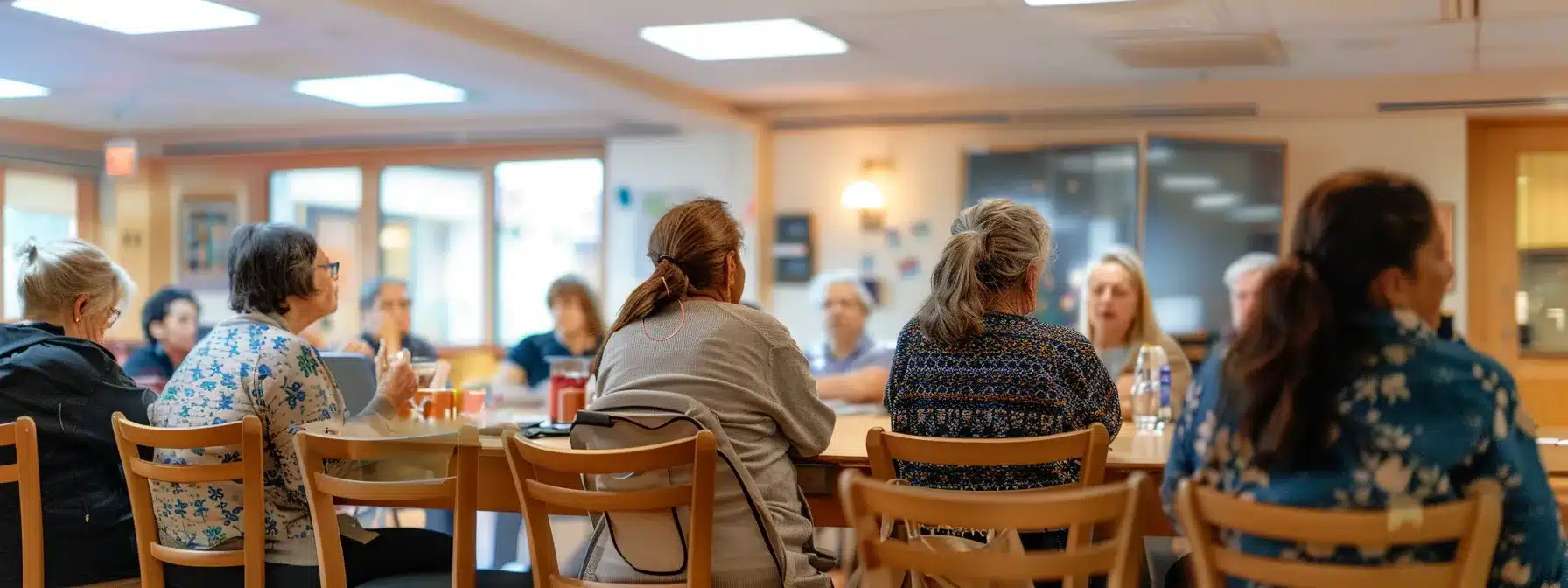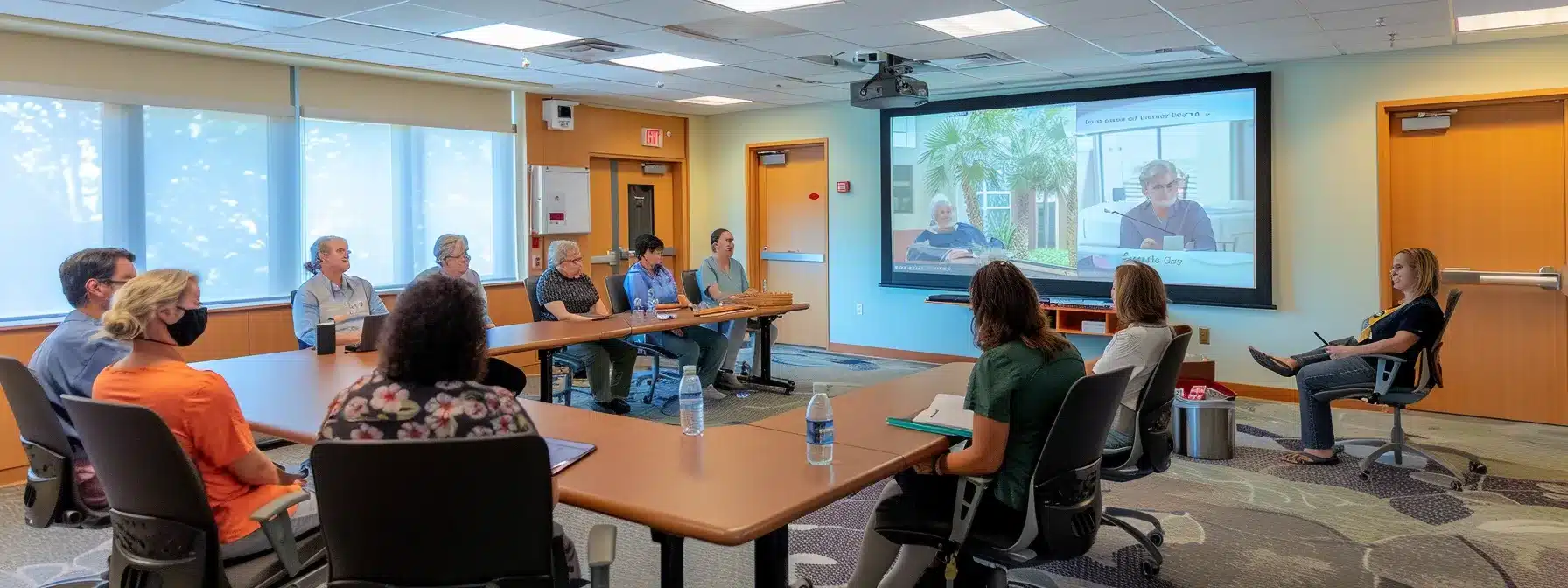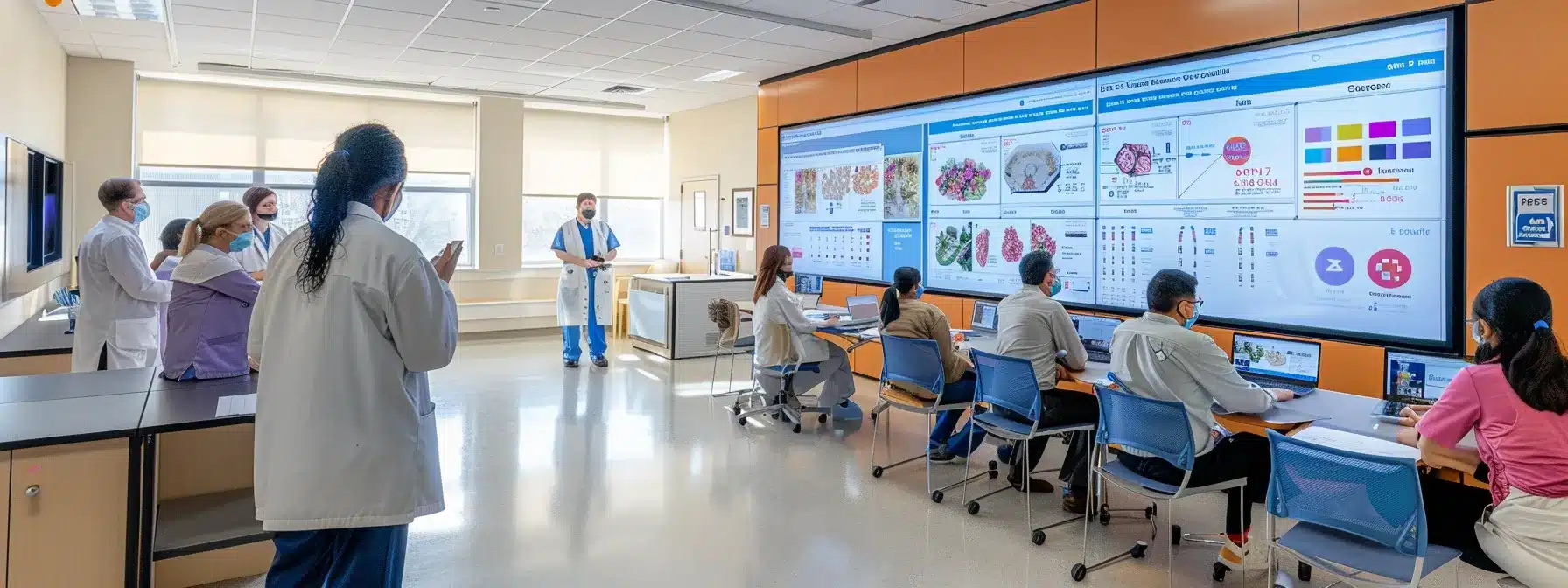Navigate memory care Delray FL with our guide. Discover costs, quality, specialized programs & ensure safe, compassionate support.

Effective Nursing Home Staff Training for Dementia Care
Table Of Contents:
- Nursing Home Staff Training Programs for Effective Dementia Care
- Key Takeaways
- Understanding the Importance of Nursing Home Staff Training Programs for Dementia Care
- Types of Nursing Home Staff Training Programs for Effective Dementia Care
- Best Practices for Implementing Training Programs in Nursing Homes
- Measuring the Impact of Training Programs on Dementia Care
- Resources and Organizations Offering Nursing Home Staff Training Programs
- Supporting Staff Wellness Through Effective Training Programs
- Frequently Asked Questions
- Conclusion
Nursing Home Staff Training Programs for Effective Dementia Care
Nursing Home Staff Training Programs for Effective Dementia Care are essential for providing quality care. The article explains various training programs and best practices that ensure staff is well-prepared for dementia care challenges. It covers program types, implementation strategies, and how results can be measured to improve care quality. Readers will learn how to manage staff challenges and enhance care for residents with dementia, ensuring a higher quality of life for everyone involved.
Key Takeaways
- Staff training programs empower caregivers to handle dementia care and improve resident outcomes
- Targeted practical training helps reduce safety incidents and improve nursing home operations
- Interactive learning develops essential skills for managing unpredictable behavioral challenges
- Mentorship opportunities build leadership and support effective care in residential settings
- Flexible scheduling and well-being practices reduce caregiver burnout and stress
Understanding the Importance of Nursing Home Staff Training Programs for Dementia Care

Effective training in dementia care and alzheimers-care improves resident outcomes in medicaid-supported settings. It addresses challenges linked to the disease while strengthening healthcare teams using guidance from the american nurses credentialing center and customer service practices. The following sections discuss challenges in alzheimers-care, dementia care, proper training’s role, and essential skills for staff.
Recognizing the Challenges of Dementia Care in Nursing Homes
Nursing home staff face considerable challenges when providing dementia care, which include managing unpredictable resident behavior and addressing the risk of mishandling delicate situations. Proper onboarding procedures coupled with compliance training at memory lane home play a critical role in equipping staff with strategies to meet these challenges head-on.
Recognizing and mitigating these challenges improves daily operations in care settings and guides actionable improvements in resident care:
The Role of Proper Training in Enhancing Resident Care
The role of proper training in enhancing resident care lies in cultivating a positive care culture that prioritizes both safety and practical skill development. Staff who undergo specialized training show improved handling of workplace violence scenarios and gain proficiency in using personal protective equipment, allowing them to support residents effectively during activities of daily living:
The second aspect focuses on building core skills that support staff in day-to-day tasks while addressing key challenges. Ongoing staff training equips caregivers with direct strategies to manage routine care tasks, reducing risks and strengthening the support system necessary for handling delicate situations related to daily living and safety, thereby demonstrating tangible benefits in improving resident well-being.
Identifying Key Skills Required for Dementia Care Staff
Nursing home staff require specific skills for effective dementia care, which include critical thinking, empathy, and technical competence. They benefit from continuing education and practical training programs that focus on safe handling procedures to reduce injury risks, ensuring that every staff member holds a valid license to practice in this specialized field:
Strong skill sets empower caregivers in dementia care settings to address unique challenges and promote resident well-being. With ongoing training and certified programs in place, nursing home staff are better equipped to manage difficult situations and ensure the highest standards of patient support.
Staff training runs deep, forging care that meets real needs. The next section details programs that build these skills for better dementia care.
Types of Nursing Home Staff Training Programs for Effective Dementia Care

Nursing home staff training programs include mandatory requirements, specialized dementia awareness programs, and person-centered care training. These courses enable the workforce to manage hazards while meeting healthcare industry standards. The following sections detail each program’s focus, practical outcomes, and essential skills for improved resident care.
Mandatory Training Requirements for Nursing Home Staff
Nursing home staff must complete mandatory training that covers essential topics in health care, ensuring every employee understands the basics of operating in a residential care setting and managing a patient effectively while using necessary tools such as a cart for routine tasks:
- Understanding patient rights and safety
- Implementing proper nursing home procedures
- Maintaining efficiency in residential care operations
- Utilizing essential equipment and techniques
The training emphasizes practical scenarios and step-by-step methods that enhance patient care while reducing risks in health care environments. This structured approach supports continuous improvements in residential care and boosts staff confidence in their daily roles within a nursing home.
Specialized Programs Focused on Dementia Awareness
The specialized training programs address dementia awareness using a structured learning management system that integrates gerontological nursing concepts, occupational safety and health practices, and strategies to manage stress. This tailored approach helps caregivers understand the unique needs of the organism, ensuring that staff are well-prepared for the daily demands of dementia care:
- In-depth education on dementia care principles
- Application of gerontological nursing techniques
- Instruction on occupational safety and health practices
- Utilization of a structured learning management system for consistent updates
- Techniques for managing stress in a care environment
The training emphasizes practical guidance and actionable insights that meet the challenges faced in a residential setting. The curriculum is designed to support staff in reducing risks and improving care outcomes, directly addressing common pain points while securing a better care experience for residents.
Person-Centered Care Training for Staff
Person-centered care training equips nursing staff in assisted living settings with practical certification opportunities and accessible online training that builds essential knowledge for managing dementia care. The approach offers straightforward strategies and real-world examples that assist caregivers in addressing everyday challenges within a small residential environment.
This training program emphasizes the importance of tailored learning modules that build core competencies while offering actionable skills to improve patient outcomes. Through certification and ongoing online training, nursing staff gain the knowledge needed to meet the specialized demands of dementia care in assisted living environments.
The discussion now shifts to the actions that put these programs into practice. Readers will learn clear steps that improve care in nursing homes.
Best Practices for Implementing Training Programs in Nursing Homes

Engaging staff in ongoing learning and development, using interactive training methods, and setting up mentorship opportunities improve retention and practical skills. This section covers evaluation techniques, harassment prevention, dementia care, nursing best practices, and fee management to support effective training programs in residential care settings.
Engaging Staff in Ongoing Learning and Development
The approach to ongoing learning in nursing homes is centered on practical training that covers critical areas such as medication management and fire safety. Engaging staff in consistent educational sessions at assisted living residences reduces turnover by equipping caregivers with clear, actionable skills to address daily operational challenges.
Active staff involvement in continuous professional development enables clear communication of best practices and demonstrates direct benefits to resident care. Focusing on topics like fire safety, medication, and essential nursing homes procedures, the training programs ensure team members perform confidently while reducing the risk of errors and staff turnover.
Utilizing Interactive Training Methods to Improve Retention
Nursing home staff benefit from interactive training sessions that focus on practical skills for direct care and Alzheimer’s-care. These sessions incorporate real-life scenarios that support skilled nursing care practices, address fall prevention strategies, and provide clarity on vaccine protocols while engaging participants actively in learning exercises:
This approach keeps staff engaged and motivated, leading to higher retention and improved performance in care settings. The practical examples provided during these sessions have shown a positive influence on both operational efficiency and resident safety, ensuring training remains effective and relevant to everyday challenges in nursing care.
Setting Up Mentorship Opportunities Among Staff
Nursing home administrators can set up mentorship opportunities to build stronger leadership among staff while reinforcing memory care services and support for customer needs. Structured pairings help new team members understand the dynamics within skilled nursing facilities and encourage the exchange of practical ideas, much like how a shopping cart gathers everyday essentials.
The mentorship framework offers clear guidelines and responsibilities for both mentors and mentees to address operational challenges effectively:
Strong practices have built a solid foundation for care. Now, hard figures reveal how that work truly impacts dementia care.
Measuring the Impact of Training Programs on Dementia Care

Assessing changes in care quality post-training, gathering feedback from staff and residents, and utilizing data to improve future initiatives play a key role in this process. Recruitment efforts, safety measures, employment standards, and effective housekeeping practices are integral to ensuring comprehensive dementia care and practical insights for ongoing program improvement.
Assessing Changes in Care Quality Post-Training
Nursing home administrators gather direct feedback and use performance metrics to assess care quality improvements after staff training. Evaluations focus on practical outcomes, such as enhanced resident safety and increased effectiveness in managing dementia-related behaviors.
Data collected through regular audits and resident feedback reveal measurable benefits from targeted training programs for dementia care:
The consistent use of these performance indicators ensures that nursing home staff training programs remain effective in improving dementia care outcomes.
Gathering Feedback From Staff and Residents
Nursing home administrators collect input from staff and residents to guide ongoing training improvements. This feedback helps identify gaps in care and practical ways to improve dementia care outcomes.
Data is recorded and analyzed to offer clear insights into the training program’s impact on care quality and resident satisfaction. The information is organized into various performance indicators:
Utilizing Data to Enhance Future Training Initiatives
Nursing home administrators review collected data to identify actionable insights that can refine staff training programs for dementia care. Feedback from residents and staff is analyzed to pinpoint areas where training can be improved, ensuring that data-driven decisions enhance overall care quality.
Data is routinely used as a foundation for updating training methods and developing new modules tailored to the unique needs of dementia care. This method helps administrators implement adjustments that directly address safety, performance, and care outcomes, thereby reinforcing the effectiveness of training initiatives.
Results from these programs reveal clear progress in caring for those with dementia. Next, expert organizations offer practical training that strengthens the skills of nursing home teams.
Resources and Organizations Offering Nursing Home Staff Training Programs

Nursing home staff training for effective dementia care benefits from a range of national and local resources. Expert collaborations and versatile training options, both online and in-person, provide practical guidance. These resources ensure that caregivers gain the necessary skills to improve resident outcomes and support everyday care processes in a residential setting.
Overview of National and Local Resources Available
The professional community benefits from a range of national and local resources that support nursing home staff training programs for effective dementia care. Industry-specific organizations offer comprehensive modules that combine practical approaches with updated strategies, ensuring caregivers can meet daily challenges with confidence and precision.
Local experts also contribute valuable insights through workshops and online courses that tailor training to meet regional needs. These resources enable administrators to implement targeted training, which directly addresses the challenges faced by nursing home staff in dementia care settings.
Collaborating With Experts in Dementia Care Training
Nursing home administrators work closely with seasoned dementia care trainers to tailor staff training programs to the specific needs of each facility. These collaborations result in practical training modules and actionable insights that directly improve care quality and resident safety.
Experts in dementia care training provide targeted guidance that strengthens overall care practices and boosts staff confidence. Their experience offers clear strategies to overcome common challenges, ensuring caregivers are well-equipped to support residents with specialized needs.
Accessing Online and in-Person Training Options
Nursing home staff training programs now offer a variety of online courses that allow caregivers to learn at a convenient pace while ensuring that essential dementia care skills are maintained. These online options provide flexible learning modules and interactive sessions that help staff remain updated on best practices in dementia care treatment.
In-person training options also offer hands-on experiences and direct mentorship that are valuable for practical skill application in assisted living settings:
- Structured classroom sessions
- Workshops with expert demonstrations
- Live feedback and collaborative learning
The programs build steady skills that matter. Next, care teams turn their energy to new training that lifts well-being every day.
Supporting Staff Wellness Through Effective Training Programs

Nursing home staff training programs play a vital role in addressing burnout and stress among caregivers. They also help foster a positive work environment and promote work-life balance in dementia care settings, ensuring that staff wellness remains a priority. This section outlines practical approaches to support caregiver health and improve overall care quality.
Addressing Burnout and Stress Among Nursing Home Staff
Nursing home staff training programs play a critical role in easing burnout and stress by equipping team members with clear, practical techniques. These programs offer actionable strategies that help caregivers manage demanding situations while increasing overall team stability and efficiency:
- Structured stress management sessions
- Peer collaboration for shared responsibilities
- Regular policy updates on wellness practices
By focusing on the well-being of caregivers, facilities can foster a supportive environment that improves care quality and staff retention. This approach and continuous professional training ensure that each team member remains resilient and effective in their role.
Fostering a Positive Work Environment for Care Providers
The facility develops strategies to cultivate a workplace culture that values transparency and mutual respect. This approach has proven effective in upholding staff morale and improving patient interactions during routine dementia care sessions:
- Flexible scheduling options
- Team collaboration initiatives
- Peer recognition programs
The training programs integrate practical measures that foster a supportive atmosphere for care providers. By encouraging open communication and shared responsibility, the staff gains confidence to manage challenges and maintain high care standards in dementia care environments.
Encouraging Work-Life Balance in Dementia Care Settings
At Memory Lane Assisted Living, staff training addresses work-life balance by incorporating flexible scheduling and supportive practices that alleviate daily pressures. This approach helps caregivers maintain steady performance and personal well-being while providing specialized dementia care in residential settings.
The training program encourages practical adjustments that allow team members to manage professional responsibilities alongside personal needs. By offering clear strategies for balancing work hours and downtime, administrators foster a stable environment that improves both caregiver satisfaction and patient support.
Frequently Asked Questions
How do staff training programs improve dementia care outcomes?
Staff training programs improve dementia care by equipping caregivers with practical skills and knowledge to create tailored care plans, ensuring better support, comfort, and improved health outcomes for seniors with Alzheimer’s and memory issues.
What types of training programs assist nursing home staff?
Nursing home staff benefit from training programs that focus on specialized dementia care methods, personalized care techniques, and safety protocols to support independent living environments and deliver quality attention for residents facing memory challenges.
Which practices ensure effective implementation of training programs?
Effective training programs at Memory Lane Assisted Living incorporate regular staff involvement, ongoing skill reviews, and customized feedback sessions to support quality care and specialized dementia needs.
How Is Training Impact Measured in Dementia Care?
Training impact is measured through performance assessments that evaluate staff competency, resident well-being, and improved care practices in dementia care at Memory Lane Assisted Living.
What organizations support nursing home staff training initiatives?
Memory Lane Assisted Living and local healthcare groups foster training initiatives, offering quality guidance on specialized dementia care techniques for nursing home staff serving individuals with Alzheimer’s and dementia in Ypsilanti and Ann Arbor.
Conclusion
Nursing home staff training programs build the foundation for exceptional dementia care. They provide caregivers with practical skills to handle everyday challenges and support resident wellness. Staff gain hands-on knowledge through structured, interactive learning methods and mentorship opportunities. The focused training approach drives continuous improvements in care quality and promotes a stable, reassuring environment in residential settings.


